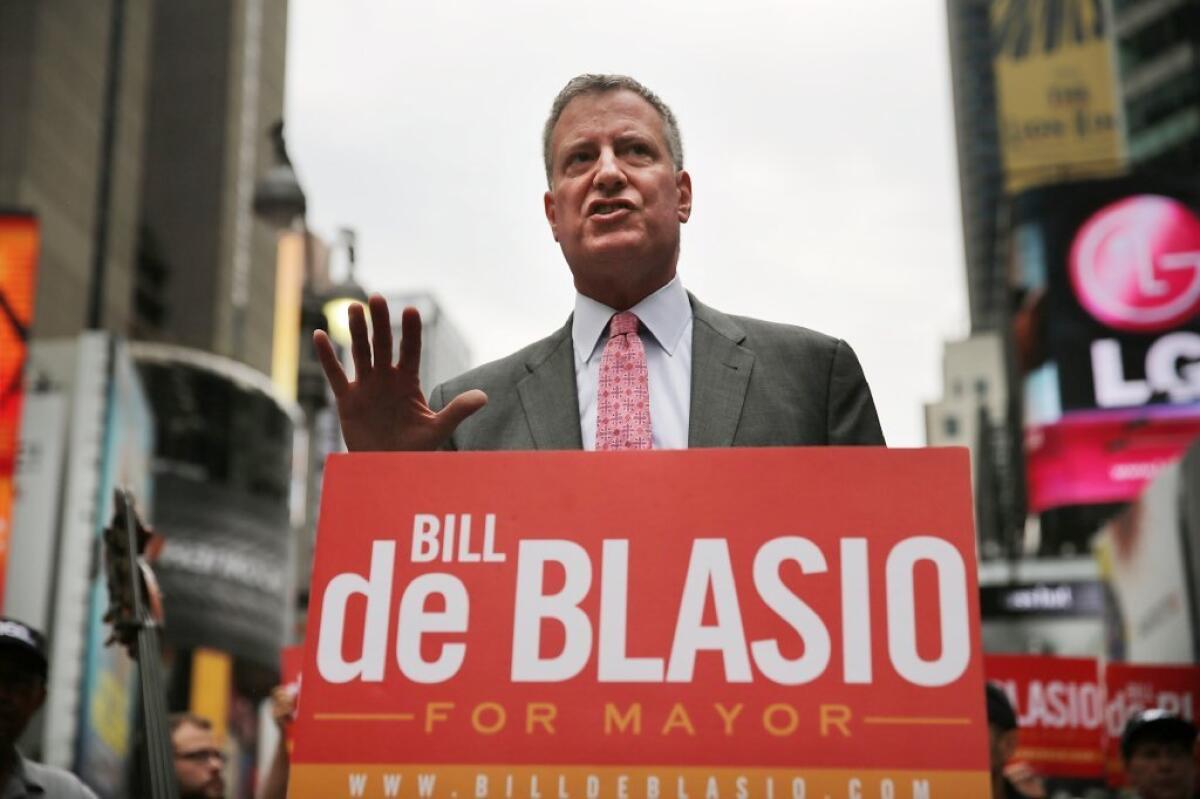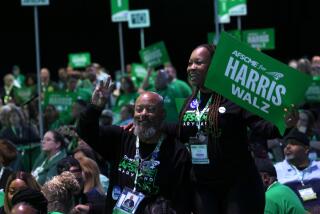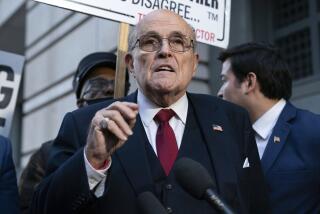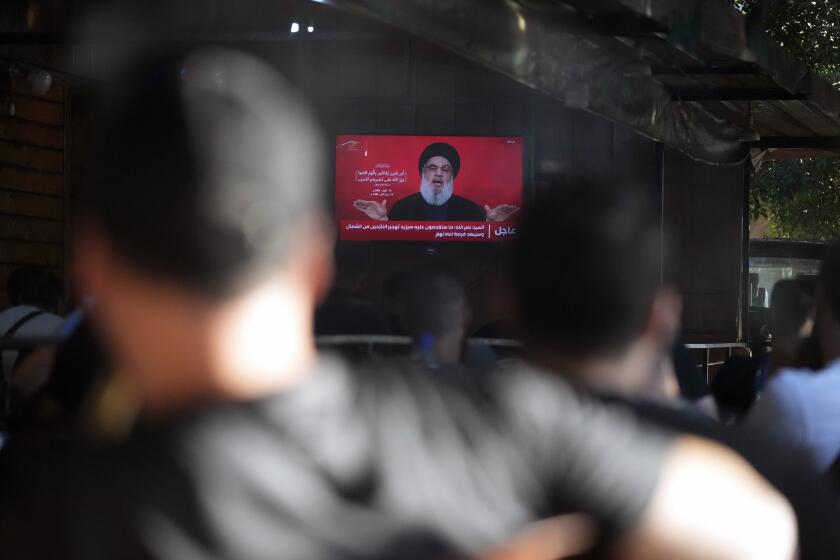Poll: Weiner fades, new Democratic leader emerges in NYC mayoral race

New York City’s most controversial candidate for mayor, Anthony Weiner, has fallen behind in the Democratic field, and there’s a new leader in the race, according to a Quinnipiac poll.
Bill de Blasio, an unabashed liberal and the city’s current public advocate, has seized the lead among likely Democratic voters a month before the Sept. 10 primary, the poll found. De Blasio has tapped into concerns over persistent income inequality that have accompanied New York’s revitalization under Mayor Michael R. Bloomberg.
In the poll, released Tuesday, 30% of Democratic voters favored De Blasio over City Council President Christine Quinn, who had 24%, and Bill Thompson, with 22%. Weiner -- who had been among the favorites until the revelation that he continued to send sexually explicit messages to women after resigning from Congress for doing the same thing -- came in fourth with 10%.
“A few weeks ago, Public Advocate Bill de Blasio looked like an also-ran. Today, he’s the leader of the pack, and a winner in the runoffs,” Maurice Carroll, director of the Quinnipiac University Polling Institute, said in a statement accompanying the poll results. “Follow the bouncing ball, folks. This lineup keeps changing.”
As for Weiner, Carroll said, “52% of likely Democratic primary voters wish he’d go away, and 51% say they’d never vote for him.”
The poll’s margin of error is plus or minus 4.1 percentage points.
The question of continuity has buzzed around New York as Bloomberg’s 12-year span in office comes to an end with mixed praise. The city has cleaned itself up from more troubled years in the 1990s, with a large drop in crime rates and the revitalization of many major neighborhoods.
But those civic achievements haven’t come painlessly, or without controversy. On Monday, a federal judge ruled that the New York Police Department’s long-standing stop-and-frisk policy -- fiercely defended by Bloomberg in the face of widespread opposition among black residents -- constituted illegal racial profiling, with the judge threatening to place the department under independent monitorship.
And the new New York of classy boutiques and tourist attraction has pinched poorer and middle-class residents who have found themselves priced out of their own city.
“Bloomberg’s New York is a city that works extremely well if you make somewhere in the six figures,” as George Packer put it for the New Yorker in assessing De Blasio’s resurgent candidacy. “If you do, you might well find yourself thinking, I get the inequality thing, I like what de Blasio’s saying — but is he going to mess everything up?”
Among De Blasio’s policy proposals is an unapologetically progressive proposal to hike New York’s income tax to 4.3% from 3.876% for residents who make more than $500,000 to fund a “universal” pre-kindergarten program. He also opposes the NYPD’s stop-and-frisk practices -- as do 60% of likely Democratic voters, according to the Quinnipiac poll.
“He has a very 1960s, 1970s vision for the city,” Howard Wolfson, a deputy mayor in the Bloomberg administration, told the New York Times last week. “If you prefer the version of the city that existed then, he’s your guy.”
And for the moment, he appears to be the Democrats’ guy.
ALSO:
FBI releases serial killer Israel Keyes’ interrogation tapes
Werner Herzog, as a public service, targets texting and driving
North Carolina faces ACLU, NAACP lawsuits over voter ID law
More to Read
Sign up for Essential California
The most important California stories and recommendations in your inbox every morning.
You may occasionally receive promotional content from the Los Angeles Times.











